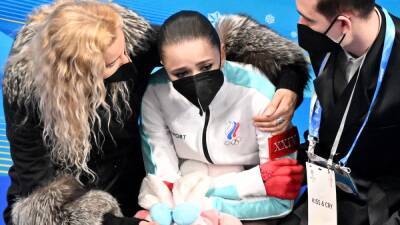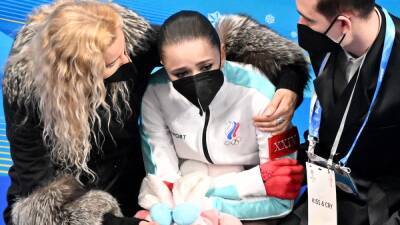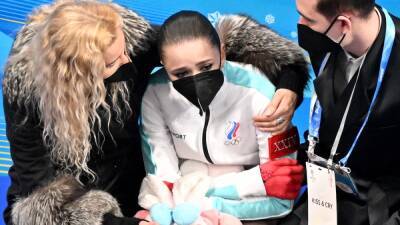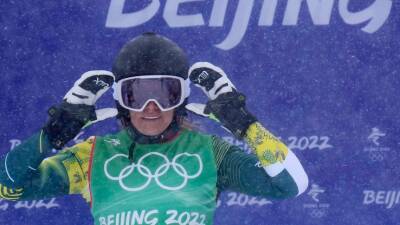Beijing Winter Olympics 50km cross-country race shortened due to high winds and freezing conditions
When you interview an athlete with tape over their face to stop their skin from becoming frozen, you know you're looking at someone who is pretty hardcore.
And not just one person. Australian skiers Phil Bellingham and Seve de Campo had just competed in the marathon of the Winter Olympic Games, the 50-kilometre free.
Cross-country skiing is the most gruelling event at the Winter Olympics.
Competitors need a VO2 max comparable to a grand tour cyclist while battling through inhospitable conditions that few would even dare to venture outside in, let alone slap on a pair of skis and race in.
Unfortunately — or fortunately, depending on your viewpoint – the Australians did not have to race a full 50km in the marquee event of the cross-country program.
Tough conditions — featuring freezing winds that made the bitingly cold temperatures of -17 degrees Celsius feel much colder — meant the distance was shortened from 50km to 28km and delayed by an hour.
The International Ski Federation(FIS) said the decision was made for safety reasons «to reduce the time of exposure of athletes in extreme conditions».
Not everyone was pleased though.
British skier Andrew Musgrave described the decision to shorten the course «because it's a bit cold and windy» as a «joke» in a Twitter post.
However, earlier in the Games, there had been complaints about the violently cold conditions athletes were being forced to race in.
Under FIS rules, competitions are stopped from taking place when temperatures are below -20 degrees Celsius, something that has been dangerously close to happening regularly in the Zhangjiakou region during these Olympics.
If you have never been in those sorts of temperatures before, that is the point that your eyelashes start to freeze and






